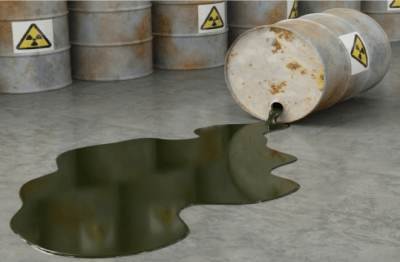Texas manufacturers are required to implement and manage a long list of environmental and hazardous materials regulations mandated by TCEQ (Texas Commission on Environmental Quality) and/or EPA (Environmental Protection Agency).
But this is much easier said than done due to, among other things, the volume & complexity of these regulations, not to mention the fact that they often change.
Here is a list of some of the more common regulations:
- Storm Water Permit & Storm Water Pollution Prevention Plan (“SWPPP”)
- Waste Water Discharge Permits
- Air emissions: Permit By Rule (“PBR”)
- Air Emissions: New Source Review Air Permit (“NSR”)
- Air Emissions: Title V Air Permit
- Industrial & Hazardous Waste Management: Resource Conservation & Recovery Act (“RCRA”): waste classification, waste determinations, storage, labeling, training
- Department of Transportation (“DOT”) Hazardous Materials Training
- Spill Prevention & Countermeasure Control (“SPCC”)
- The Emergency Planning and Community Right-to-Know Act (“EPCRA,”)
- Tier II Reporting
Even if you’re able to understand the regulations, implementing and managing them on an ongoing basis can be even tougher. Compliance management is a daunting endeavor, which includes having customized written programs, obtaining permits and registrations, conducting routine inspections & employee training, tracking, meeting reporting deadlines and so on.
As a result of these and other challenges, many Texas manufacturers routinely operate out of compliance.
Small manufacturers tend to struggle the most, due to a very common lack of internal expertise, time and resources that are needed to keep up.

But the problem is that this situation ends up creating significant risks, not only for the company in the form of huge regulatory fines and penalties as well as PR nightmares if things go wrong, but also for potential harm to the environment and local communities.
These risks are very real and unfortunately play out everyday across the country with devastating effects.
It’s a lot to take in, but the facts and risks can’t be ignored: If you’re a manufacturer operating out of compliance, you need to take action or face the potential consequences.

Fair enough you might be thinking, but making the decision to take action and achieve compliance poses some very interesting questions, and in my experience here are the 2 big ones:
- How do we determine which of these regulations apply to our facility?
- What if we’ve been operating out of compliance with any, or all of these regulations, for months or even years? Will we get fined and penalized by TCEQ and/or EPA?
These 2 questions bring us back to the point of this blog post, which is the Texas Environmental, Health and Safety Audit Privilege Act.
For companies in this predicament, Texas offers a fantastic “get out of jail free” program called the Texas EHS Audit Privilege Act.
The act is an incentive program designed to help non-compliant companies achieve and manage environmental compliance without the fear of fines and penalties, even if they’ve been operating out of compliance for many years.
Here’s a quick summary of how the program works:
- Notify TCEQ in writing that you plan to conduct an environmental audit of your facility to determine which regulations apply and where you’re in violation
- Disclose all violations in writing to TCEQ
- Commit to correcting all violations in a reasonable period of time (normally 3-6 months, however extensions are available for valid reasons)

Do all of these things, and believe it or not, your company can not only achieve compliance, but do so without fear of fines and penalties.
Of course, as with any government program, there are rules and guidelines that must be followed, which can be found on TCEQ’s website.
I strongly encourage you to read this guidance, but here are some of the highlights:
-You must submit the “Notice of Audit” via certified mail AND it must be received by TCEQ prior to the start of the audit. If you fail to do this, all protections are voided. And they don’t accept fax, email or phone call notifications, it has to be via certified mail due to the way the law is currently written. No exceptions!
-In order to qualify, your company must not previously know that they’re out of compliance. This is a little tricky so let me try to explain: TCEQ understands that companies wouldn’t participate unless they know or suspect they’re out of compliance, but what they won’t tolerate is if a company is intentionally operating out of compliance or already knows it’s out of compliance with specific regulations.
This is an important issue so let me elaborate:
For example, let’s say that a company had assessed their paint booth operational emissions in the past and determined that they needed an air permit, but failed to get one (for whatever reason). This scenario would void their right to participate in the program.
Here’s my guidance on this issue: if you suspect that you’re out of compliance with any environmental or hazardous materials regulations, DON’T TAKE STEPS TO CONFIRM IT, “JUST PUT DOWN THE PENCIL” AND MOVE FORWARD WITH THE AUDIT PRIVILEGE ACT PROCESS. In this situation, you have nothing to lose and everything to gain!
-Your company can opt to only audit certain media (ie: air, water, waste or hazardous materials) but skip others.
– You have 6 months to complete the audit, but make sure to disclose any violations in writing (ie: “Disclosure of Violations”) as soon as you find them. This is critical, because even if you’re participating in the program, TCEQ could inspect your company, and if they find violations that you haven’t disclosed yet, they can still fine your company believe it or not!
– If your company doesn’t have a qualified person on staff to complete the self-audit, it’s recommended that you hire a qualified employee or environmental consultant with experience navigating the Texas EHS Audit Privilege Act process.
On a final note, always remember that once the audit is completed and the violations disclosed, the clock starts ticking so it’s critical that your company immediately begin taking action to correct all violations and achieve compliance. Once this process is complete, submit notification to TCEQ to close the process and now you can breathe a sigh of relief and achieve yet another critical goal: piece of mind!
We’ve Helped Many Texas Manufacturers Navigate
The TX EHS Audit Privilege Act
And Would Love To Help Yours Too!
Call 512-457-0374 or Click Below To Schedule Your Free Consultation

